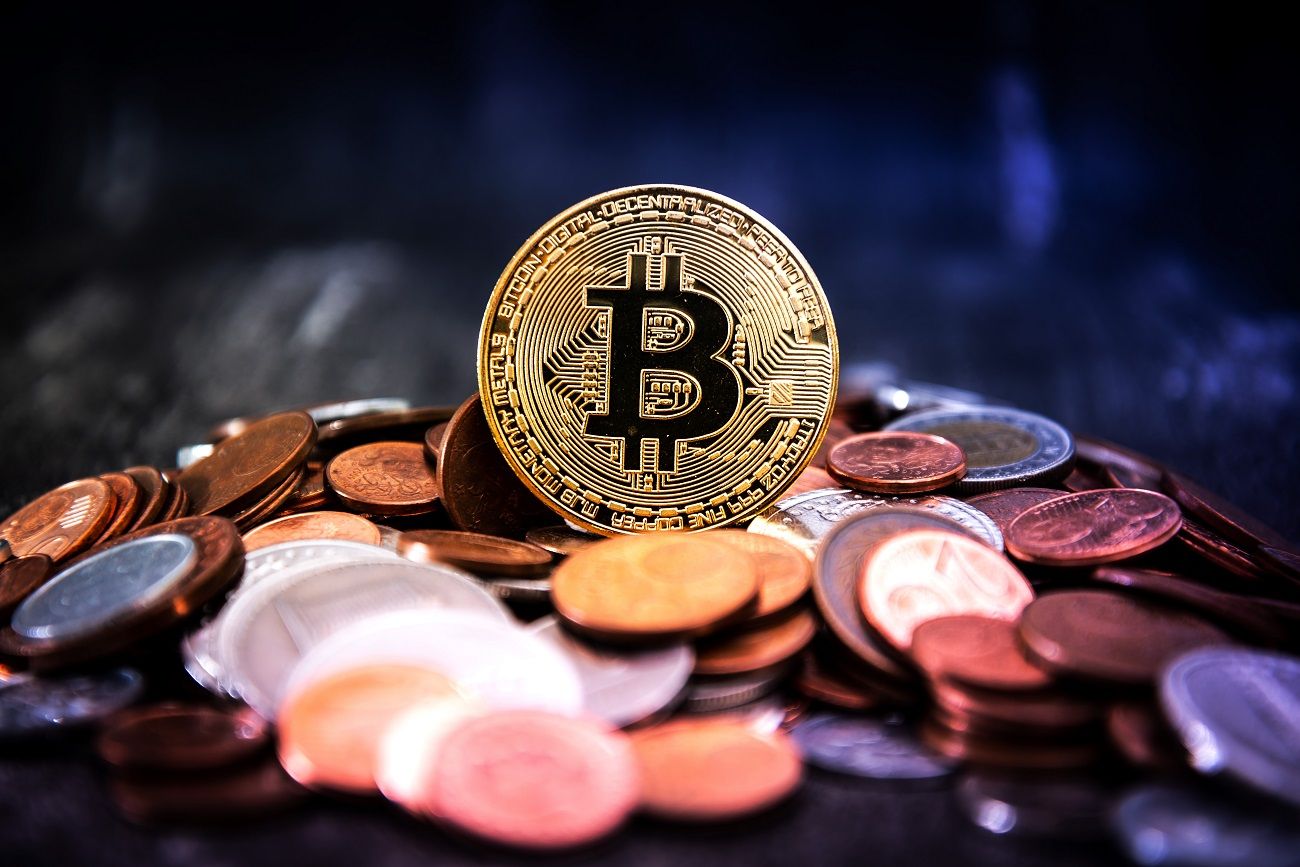
Since launching 12 years ago, Bankless Times has brought unbiased news and leading comparison in the crypto & financial markets. Our articles and guides are based on high quality, fact checked research with our readers best interests at heart, and we seek to apply our vigorous journalistic standards to all of our efforts.
BanklessTimes.com is dedicated to helping customers learn more about trading, investing and the future of finance. We accept commission from some of the providers on our site, and this may affect where they are positioned on our lists. This affiliate advertising model allows us to continue providing content to our readers for free. Our reviews are not influenced by this and are impartial. You can find out more about our business model here.
10 Best Bitcoin Exchanges in 2025




Finding the best Bitcoin exchange is key to a smooth and convenient trading experience. With so many platforms to choose from, the most suitable exchanges and trading platforms can be a tricky task. Our team spent time reviewing several different crypto exchanges to determine the top options to use this year. In this guide, we will reveal the 10 best Bitcoin exchanges for both beginners and experienced traders in 2025.
A List of Our Top 10 Bitcoin Exchanges
- Coinbase: The overall best Bitcoin exchange with a user-friendly interface, simple mobile app and native crypto wallet.
- Gemini: The best mobile app the trading Bitcoin and other cryptocurrencies from as little as $1.
- Binance: One of the world’s largest crypto exchanges with a plethora of features such as staking, lending and NFTs.
- Coinmama: The best exchange to buy Bitcoin with credit card. Coinmama offers instant transactions and a simple interface.
- Bisq: The best decentralized Bitcoin exchange to buy Bitcoin anonymously.
- Kraken: Top Bitcoin trading platform that offers a good range of educational resources and 24/7 customer support.
- Bitmart: Trade over 15000 crypto instruments from your phone. Bitmart is the best Bitcoin trading platform that offers copy trading and futures.
- eToro: The best brokerage that offers access to crypto and stocks. Ideal for investors who want to build a diverse portfolio.
- Cash App: The best mobile banking app for buying Bitcoin with your debit card.
- Crypto.com: Popular crypto exchange that offers a range of features including a crypto debit card, DeFi wallet, NFT marketplace and charting interface.
The above list is not exhaustive and there are many different Bitcoin exchanges and platforms out there. Check out the following guides to find platforms for more specific needs.
Top 10 Bitcoin Exchanges Compared
In the following section, we compare each of the top Bitcoin platforms to shed light on the finer details. Further down, we will explain why we chose each platform for our top 10 list.
| # | Provider | Fee (USD 1000) | Number of Bitcoin Trading Pairs* | Get Started |
| 1 | Coinbase | $0 – $6. Varies based on pricing tier and maker/taker order type | 73 | Sign up now |
| 2 | Gemini | $9.9 – $14.9. Varies based on order amount and device-type | 11 | Sign up now |
| 3 | Binance.US | $0 – $4.5. Varies based on Trading Pair Tiers and VIP Level | 24 | Sign up now |
| 4 | Coinmama | $9 – $39. Varies based on Loyalty Level. | 0 | Sign up now |
| 5 | Bisq | For 1 BTC: 0.0012 BTC to 0.0088 BTC | Depends on market availability | Sign up now |
| 6 | Kraken | $0 – $2.6. Varies based on 30-day trading volume and maker/taker type order. | 0 | Sign up now |
| 7 | BitMart | $0.6 – $2.5. Varies based on Trading level and maker/taker order type. | 39 | Sign up now |
| 8 | eToro | $10 | 0 | Sign up now |
| 9 | Cash App | Not specified. Fee leviable is disclosed during the trade confirmation. | 0 | Sign up now |
| 10 | Crypto.com | $0 – $0.75. Varies based on 30-day trading volume and maker/taker order type. | 0 | Sign up now |
* The exchanges marked 0 may have BTC pairs but don’t allow crypto-to-crypto trades in the US.
eToro Disclaimer : This ad promotes virtual cryptocurrency investing within the EU (by eToro Europe Ltd. and eToro UK Ltd.) & USA (by eToro USA LLC); which is highly volatile, unregulated in most EU countries, no EU protections & not supervised by the EU regulatory framework. Investments are subject to market risk, including the loss of principal.
Why We Chose The 10 Best Crypto Exchanges
Let’s take a look at why each platform made it to our list of the best exchanges to use in 2025.
1. Coinbase – Best Crypto Exchange for Beginners

Coinbase is the largest US-based cryptocurrency exchange, offering 200+ currencies and more than 500 trading pairs.
The centralized exchange has nearly 100 million users in over 100 countries and more than $250 billion in assets on its platform.
Coinbase provides a relatively simpler interface that is excellent for beginners. It’s easy to open an account and deposit USD or link your bank account or card.
The system is accessible on the web and through iOS and Android apps. With a clean design, Coinbase ensures even first-timers can quickly start trading.
Although the main exchange is designed for beginners, more experienced traders can opt for Coinbase Pro, which has a more straightforward fee structure and allows crypto-to-crypto transactions and more trade types, such as limit and stop orders.
Coinbase boasts industry-leading security features, with more than 98% of customers’ assets stored in cold vaults. However, it’s important to mention that there have been cases of customers’ Coinbase accounts being compromised.
| Is Coinbase Available in the US? | Yes (except Hawaii) |
| Deposit Fee | ACH: Free; Wire: $10; PayPal: 2.5% |
| Trading Fee | 0.00%–0.60%. Varies based on pricing tier and maker/taker order type. |
| Additional Fees | Crypto conversion: up to 2% in spread margins |
| Withdrawal Fees | ACH: Free; Wire: $25 |
| Minimum Order Value | $2 |
| Minimum Deposit | $25 |
| Number of Cryptocurrencies Pairs | 500+ |
| Does Coinbase Have a Wallet? | Yes |
| Does Coinbase Have an App? | Yes |
| Additional Services | Crypto derivatives, NFTs, Debit card, Merchant payment service |
| KYC Required | Yes |
| Maximum Leverage | 3x (Coinbase Pro) |
| Platforms | iOS, Android, Windows |
2. Gemini – Best Mobile App to Buy Bitcoin



Gemini stands out with its emphasis on security and compliance—it is the world’s first crypto exchange to get a SOC-2 certification, an examination given by third-party auditors to assess a company’s security levels.
The interface is user-friendly, with a simple buy and sell option and a detailed support section. For experienced traders, there’s the ActiveTrader platform, which has better charting tools, support for multiple order types, and quicker trade execution.
The mobile app is equally well-designed, with high ratings on the app stores and most of the functionality of the desktop site. For customer support, there’s no live system, but you get email and chat support, a virtual chatbot, and a comprehensive help center.
Gemini’s offers a range of other useful features including a native crypto wallet, the Gemini Clearing portal, a peer-to-peer trading platform, and Gemini Basic, a much simpler desktop platform for absolute beginners.
| Is Gemini Available in the US? | Yes |
| Deposit Fee | Debit card: 3.49%; ACH, wire transfer, cryptocurrency: Free |
| Trading Fee | $0.99–$2.99 under $200 order value; 1.49% above $200. Varies based on order amount and device-type. |
| Additional Fees | Custody fee: 0.4% or $30/month/asset; Transfer from Gemini Custody to Gemini Exchange: $125/withdrawal |
| Withdrawal Fees | 0.0001 BTC |
| Minimum Order Value | 0.00001 BTC |
| Minimum Deposit | $0 |
| Number of Cryptocurrencies Pairs | 130+ |
| Does Gemini Have a Wallet? | Yes |
| Does Gemini Have an App? | Yes |
| Additional Services | P2P trading, Credit card |
| KYC Required | Yes |
| Maximum Leverage | No leveraged trading |
| Platforms | iOS, Android, Windows |
3. Binance.US – Best Bitcoin Exchange for Low-cost Trading



Binance.US, owned by Binance in partnership with a US firm, is independently managed from the main Binance exchange. The US version of the popular exchange offers around 130 cryptocurrencies, including Bitcoin.
Binance.US stands out as a top choice for buying Bitcoin due to the platform’s low fee structure.
Users can opt for an instant buy/sell for a 0.5% fee. The minimum trade value is $10. Debit card and wire transfers incur charges of 4.5% and $15 per transaction, respectively; credit card purchases aren’t allowed.
You can receive trading discounts of up to 25% if you hold the native BNB token. Investors can also stake BNB for passive rewards through the platform.
Binance’s basic platform is good for simple buying and selling, while the advanced platform offers features like a candlestick chart and real-time pricing. There’s also a P2P platform, but its minimum trade value is very high at $10,000.
Another notable feature of Binance.US is the Binance Academy, which offers a range of excellent education resources.
Binance has come under a lot of regulatory scrutiny over the last few years so, it is wise to proceed with caution.
| Is Binance.US Available in the US? | Yes (except Hawaii, New York, Texas, and Vermont) |
| Deposit Fee | Wire transfer, ACH: Free; Debit card, Apple Pay: 3.75% |
| Trading Fee | 0.00%–0.45%. Varies based on Trading Pair Tiers and VIP Level. |
| Additional Fees | None |
| Withdrawal Fees | 0.0002 BTC; ACH: Free; Wire transfer: $10–$15; |
| Minimum Order Value | $10 |
| Minimum Deposit | $0 |
| Number of Cryptocurrencies Pairs | 280+ |
| Does Binance.US Have a Wallet? | Yes (partnership with a third party) |
| Does Binance.US Have an App? | Yes |
| Additional Services | P2P trading |
| KYC Required | No (for daily withdrawals up to 0.06 BTC) |
| Maximum Leverage | No leveraged trading |
| Platforms | iOS, Android, Windows |
4. Coinmama – Most Payment Methods
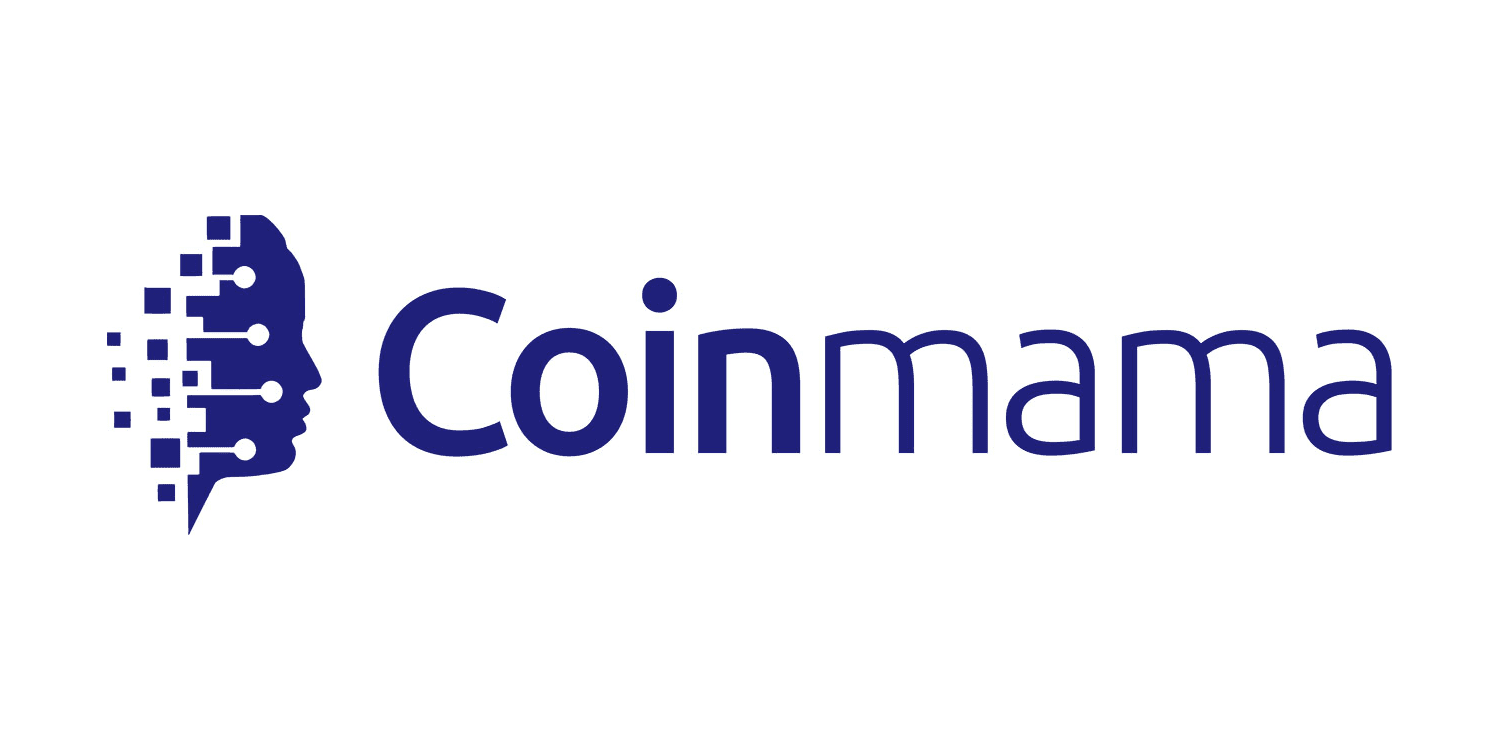


Among the older crypto exchanges, Coinmama is known for its simplicity, making it ideal for beginners. However, because of high fees and very few assets on offer, it loses out to other platforms in most areas. The exchange is usable in all US states except New York and Hawaii.
Coinmama is a simple platform that supports and buying and selling of cryptocurrency. Consequently, the transaction flow is simple.
The platform supports buying of just 9 crypto coins, with fractional shares of as low as $30. However, selling is only possible for Bitcoin. Moreover, there are no crypto-to-crypto transactions.
The reason that we decided to include the exchange in our list is that it offers a wide range of payment options, including debit and credit cards, wire transfer, Google Pay, Apple Pay, Skrill, Fedwire, and SWIFT.
It is considered to be the best Bitcoin exchange for buying BTC with credit card in the US.
| Is Coinmama Available in the US? | Yes (except Hawaii and New York) |
| Deposit Fee | Bank transfer, ACH, Fedwire, SWIFT: Free; Skrill, NETELLER: 2.5%; Credit/debit card, Apple Pay, Google Pay: 4.99% |
| Trading Fee | 0.99%–3.90%. Varies based on Loyalty Level. |
| Additional Fees | Spread fees (XBX Index market rate + 2%) |
| Withdrawal Fees | $0 |
| Minimum Order Value | $50 (for BTC; $30 for the first order) |
| Minimum Deposit | $50 ($30 for the first order) |
| Number of Cryptocurrencies Pairs | None |
| Does Coinmama Have a Wallet? | No |
| Does Coinmama Have an App? | Yes |
| Additional Services | None |
| KYC Required | Yes |
| Maximum Leverage | No leveraged trading |
| Platforms | Android, Windows |
5. Bisq – Best Decentralized Exchange to Buy Bitcoin
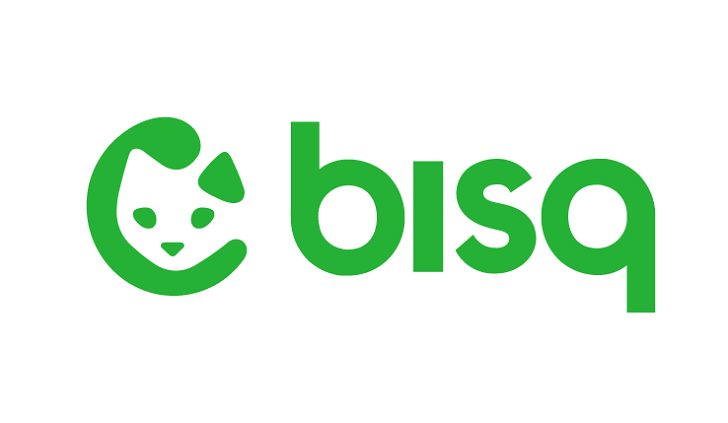


Formerly known as Bitsquare, Bisq is an open-source, decentralized exchange usable from anywhere in the US through the Tor network.
Bisq requires installation on your computer and self-management of assets. While these bring greater user control, privacy, and security, the system can prove complex for novice users.
As a peer-to-peer platform, the coins available on Bisq depend on what’s being offered by users. The system matches your quote with a counterparty, following which the trade takes place. Both parties have to make a refundable security deposit, and the platform has a three-tier dispute resolution process.
Bisq doesn’t ask for personal information or an ID, making it a good non-KYC exchange to consider. To minimize fraud, it does restrict your trading amount for the first two months. There are no centrally held funds; you link a third-party wallet and must manage your keys. The Bisq community has some other safeguards to minimize risks, but anonymity has the potential to encourage fraud.
Bisq charges a trading fee of 1% on the overall trade value, with a greater share paid by the buyer. Your fee can be lower if you pay using BSQ, the Bisq native token.
While there is a wide range of options to make payments (no credit cards, though), the community has per-trade limits on some modes.
| Is Bisq Available in the US? | Yes |
| Deposit Fee | 0.001 BTC |
| Trading Fee | 1% (0.88% buyer, 0.12% seller) |
| Additional Fees | None |
| Withdrawal Fees | 0.0003 BTC – 0.0005 BTC |
| Minimum Order Value | 0.06 BTC |
| Minimum Deposit | 0.006 BTC |
| Number of Cryptocurrencies Pairs | No fixed number |
| Does Bisq Have a Wallet? | No |
| Does Bisq Have an App? | Only for notifications |
| Additional Services | None |
| KYC Required | No |
| Maximum Leverage | No leveraged trading |
| Platforms | macOS, Windows, Linux |
6. Kraken – Popular crypto exchange with 24/7 customer support
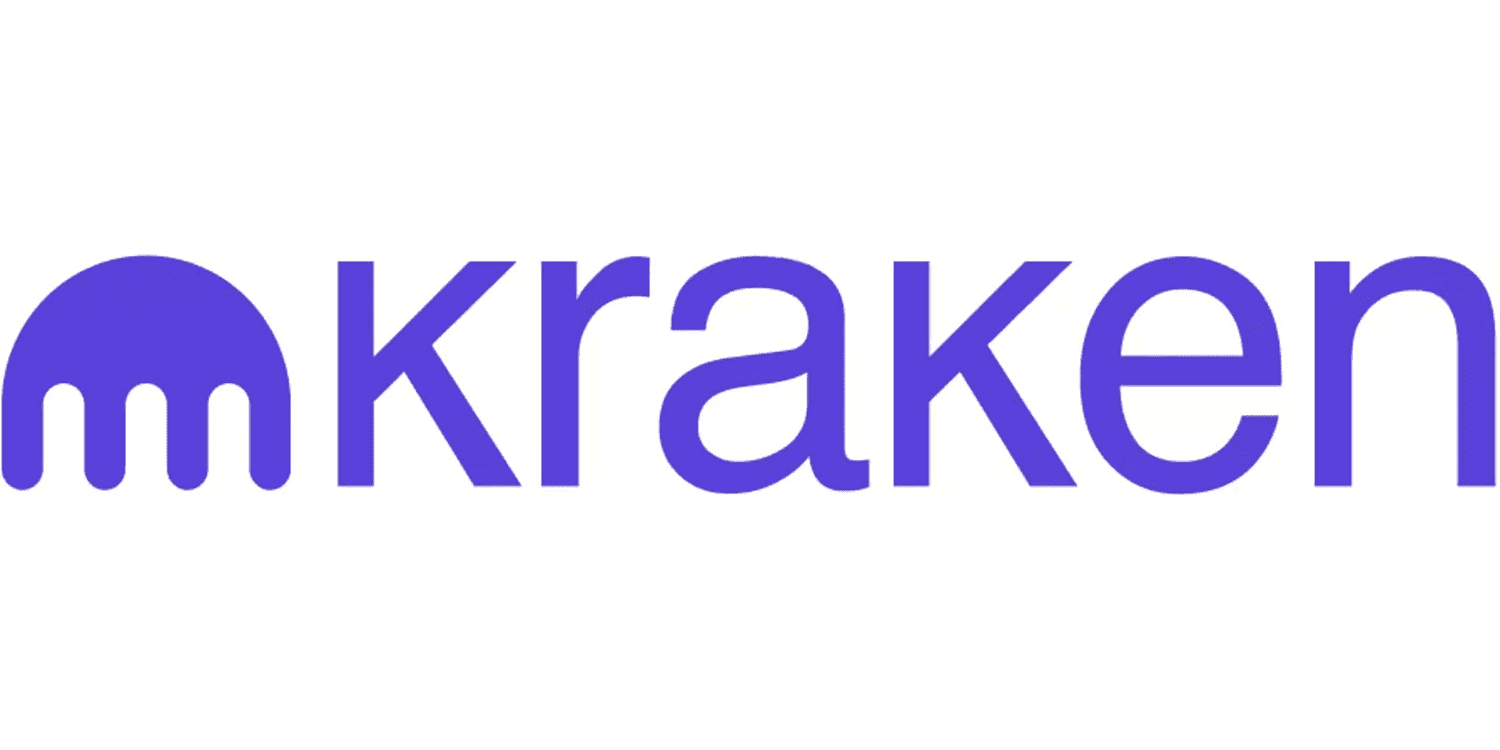


Kraken is a San Francisco-based centralized exchange known for a wide selection of assets (200+ coins and about 600 trading pairs) and low fees for advanced trading. However, for beginners, the system can prove complex and expensive.
The main Kraken platform works well for the simple buying and selling of Bitcoin. The verification is relatively quick; once done, you can link your bank account and start fiat-to-crypto or crypto-to-crypto transactions. The interface is easy to figure out, and you can also earn up to 23% interest through staking.
Anyone with a Kraken account can access Kraken Pro, a more complex platform with advanced features such as charts and info on open orders.
To facilitate complex trading strategies, Kraken Pro offers lower fees than the main Kraken exchange. Beginning at 0.26% for takers and 0.16% for makers. The fees come down if you have high trading volumes over the previous 30 days.
Spot trading prices on the main platform begin at 1.5% for most currencies. Depending on the funding mode, there are additional charges from 0.5% to over 3.75%.
Perhaps one of Kraken’s best features is the 24/7 customer support. If you are a frequent trader, you can also get a personal account representative who will handle any queries that you have.
| Is Kraken Available in the US? | Yes (except New York and Washington state) |
| Deposit Fee | Credit card: 3.75% + €0.25; ACH: 1.5% |
| Trading Fee | 0.00%–0.26%. Varies based on 30-day trading volume and maker/taker type order. |
| Additional Fees | Margin fees: 0.01%–0.02% (opening) + 0.01%–0.02% (rollover every 4 hours) |
| Withdrawal Fees | 0.00001 BTC (depends on cryptocurrency) |
| Minimum Order Value | 0.0001 BTC (depends on cryptocurrency) |
| Minimum Deposit | 0.0001 BTC (depends on cryptocurrency) |
| Number of Cryptocurrencies Pairs | 600+ |
| Does Kraken Have a Wallet? | No |
| Does Kraken Have an App? | Yes |
| Additional Services | OTC trading |
| KYC Required | Yes |
| Maximum Leverage | 5x |
| Platforms | iOS, Android, Windows |
7. BitMart – Access Over 1500 crypto assets and advanced trading features
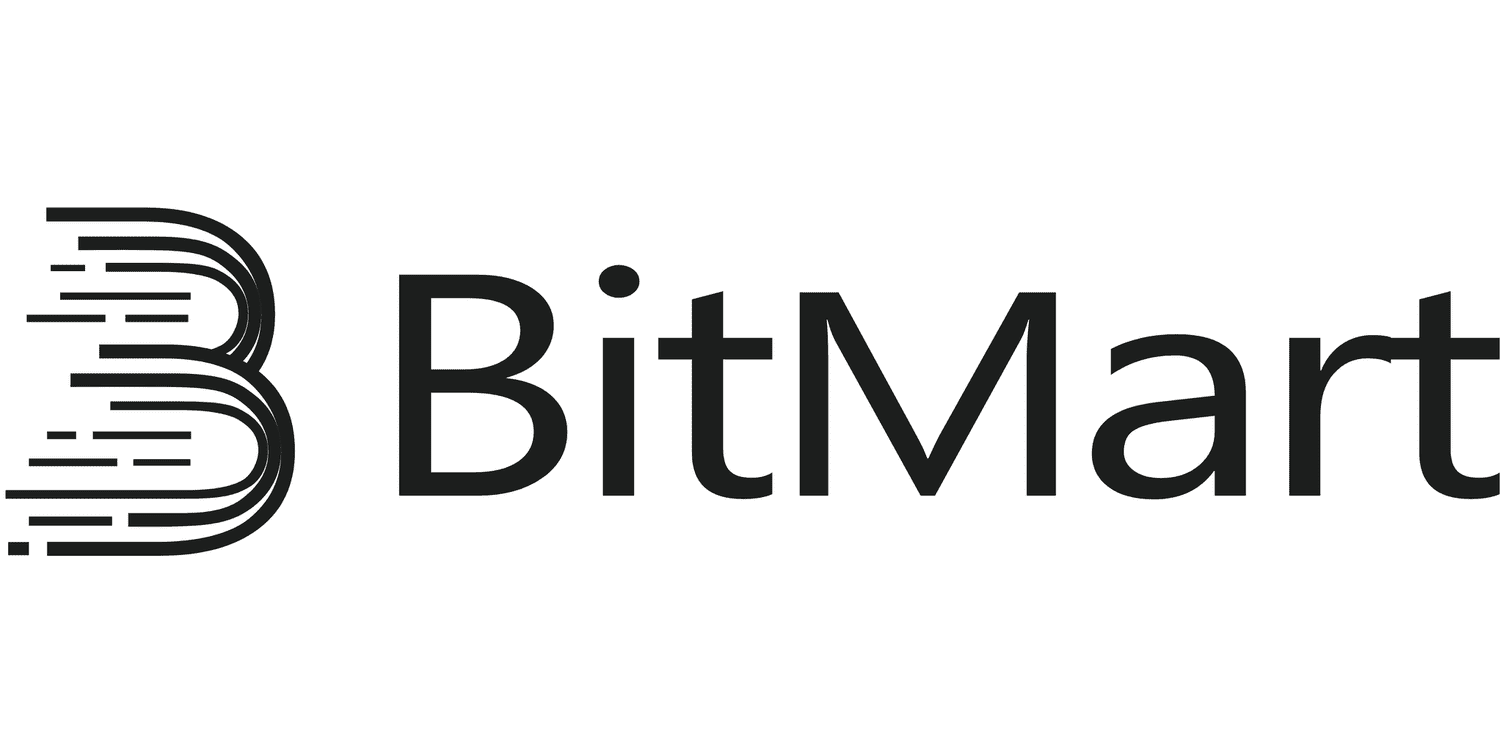


BitMart is a centralized exchange with over 650 cryptocurrencies and assets. Over 9 million crypto investors across 180 countries use its web-based and mobile platform. T
The exchange offers several services beyond buying and selling, including staking, derivatives trading, lending, and savings products. However, its earning and lending services are not available in the US.
For beginners, there’s a simple buy-and-sell option, with many ways to deposit fiat currency to buy Bitcoin. Advanced users can benefit from detailed charts, limit orders, live order books, and more.
The interface can be a tad intimidating at first, but it isn’t difficult to figure out. You have 24/7 live chat and email support backed by a substantial library of resources and a chatbot for basic queries.
Opening an account involves a two-tier verification process. For small amounts of cryptocurrency, you need to provide basic personal information. The Level 2 tier is for access to all features and larger trading amounts, requiring a government-issued ID and facial verification.
BitMart’s fees are on the lower side, starting at 0.25% and coming down as trade value increases. Fee discounts are offered if you hold the native BMX tokens. The platform doesn’t charge deposit fees, but some partner debit and credit cards and other payment modes can incur high charges.
The security features appear industry-standard, including 99% of assets in cold storage, 2FA, withdrawal confirmation, and end-to-end encryption.
However, BitMart experienced a data hack in December 2021, resulting in customers’ assets worth almost $200 million being lost. The firm pledged to compensate its users, but the FTC has recently opened an investigation into the firm’s security measures.
| Is BitMart Available in the US? | Yes |
| Deposit Fee | None |
| Trading Fee | 0.06%–0.25%. Varies based on Trading level and maker/taker order type. |
| Additional Fees | None |
| Withdrawal Fees | 0.0005 BTC (depends on currency) |
| Minimum Order Value | 0.005 BTC |
| Minimum Deposit | $50 |
| Number of Cryptocurrencies Pairs | About 750 |
| Does BitMart Have a Wallet? | Yes |
| Does BitMart Have an App? | Yes |
| Additional Services | Crypto derivatives, NFTs |
| KYC Required | Yes |
| Maximum Leverage | Does not offer leveraged trading in the US |
| Platforms | iOS, Android, Windows |
8. eToro – The Best Broker For Buying Bitcoin and Stocks



eToro stands out as the best platform for investing in both crypto and the stock market.
In the US, investors could only trade in crypto on eToro until 2022 but have access to stocks and ETFs now. The platform is still unavailable in a few states.
eToro’s greatest claim to fame is social trading, which allows users to match trades made by certain popular traders. Plus, every user gets a $100,000 virtual trading account to practice trading without spending actual money.
To open an account, you must provide basic personal details, answer some questions meant to gauge risk appetite and trading experience, and undergo KYC verification. The process takes a few days.
Once verified, you can deposit funds from a bank account or debit card to begin trading. The primary platform has a simple interface for buying and selling. Margin and leverage trading are not offered in the US. Crypto-to-crypto trading isn’t allowed either, but some coins can be converted to others. eToroX, meant for experienced and institutional traders, is accessible through the same account.
eToro charges a 1% fee for crypto purchases or sales. There are no withdrawal or currency conversion fees for US customers. There are, however, charges for transferring crypto to the eToro Money wallet and leaving your account inactive for a year. eToroX has a 5bps transaction fee.
eToro is most suitable for long-term crypto investors who want to grow their wealth over time.
eToro USA LLC and eToro USA Securities Inc.; Investing involves risk, including loss of principal; Not a recommendation. eToro USA LLC does not offer CFDs. Crypto investing carries a high risk and is highly volatile. eToro (Europe) Ltd crypto trading is provided via DLT Finance, crypto custody by Tangany. Tax may apply.
| Is eToro Available in the US? | Yes (except Hawaii, Minnesota, Nevada, and New York) |
| Deposit Fee | $0 |
| Trading Fee | 1% |
| Additional Fees | Inactivity fee (after 1 year): $10/month |
| Withdrawal Fees | $0 |
| Minimum Order Value | $10 |
| Minimum Deposit | $100 |
| Number of Cryptocurrencies Pairs | None |
| Does eToro Have a Wallet? | Yes |
| Does eToro Have an App? | Yes |
| Additional Services | Stocks, ETFs |
| KYC Required | Yes |
| Maximum Leverage | Does not offer leveraged trading in the US |
| Platforms | iOS, Android, Windows |
9. Cash App – The Best Mobile Banking App to Buy Bitcoin
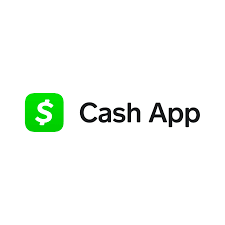


Cash App, the popular personal finance mobile app, is offering Bitcoin trading in the US since 2018. However, the platform is strictly for beginners interested in Bitcoin exclusively. It also works if you want to diversify your investments across stocks, ETFs, and Bitcoin on the same platform.
Cash App is a great option because of it’s simplicity. If you already have a Cash App account for other services, you don’t need a separate sign-up process to buy and sell Bitcoin. Link your bank account, input the USD value of the Bitcoin amount you want to buy, enter a PIN, and the trade is executed in no time.
The app doesn’t have tools for technical analysis or charting, making it less viable for advanced traders.
For storage, you can either opt for Cash App’s secure system or take custody of your coins by easily moving them to a crypto wallet. Moreover, you are offered with a fee-less option to send Bitcoin to friends and family, not seen on most other exchanges.
The trading fee on Cash App is of concern. It’s a bit high, usually ranging from 1.5% to 2.3% of the transaction value, depending on the demand at the time.
Since Cash App is also a banking system, you get a Cash Card to withdraw cash at ATMs. For this, the app charges a $2 surcharge above the fee charged by the ATM provider.
| Is Cash App Available in the US? | Yes |
| Deposit Fee | Credit card: 3%; Bank transfer, Debit card: Free (Instant deposit: 1.5% extra) |
| Trading Fee | Not specified. Fee leviable is disclosed during the trade confirmation. |
| Additional Fees | None |
| Withdrawal Fees | None for standard withdrawals; expedited withdrawals incur network fees depending on blockchain congestion |
| Minimum Order Value | $1 |
| Minimum Deposit | $1 |
| Number of Cryptocurrencies Pairs | None |
| Does Cash App Have a Wallet? | Yes |
| Does Cash App Have an App? | Yes |
| Additional Services | Stocks, ETFs, Banking services, Debit card |
| KYC Required | Yes |
| Maximum Leverage | No leveraged trading |
| Platforms | iOS, Android |
10. Crypto.com – Popular Bitcoin Exchange with a Huge Range of Features
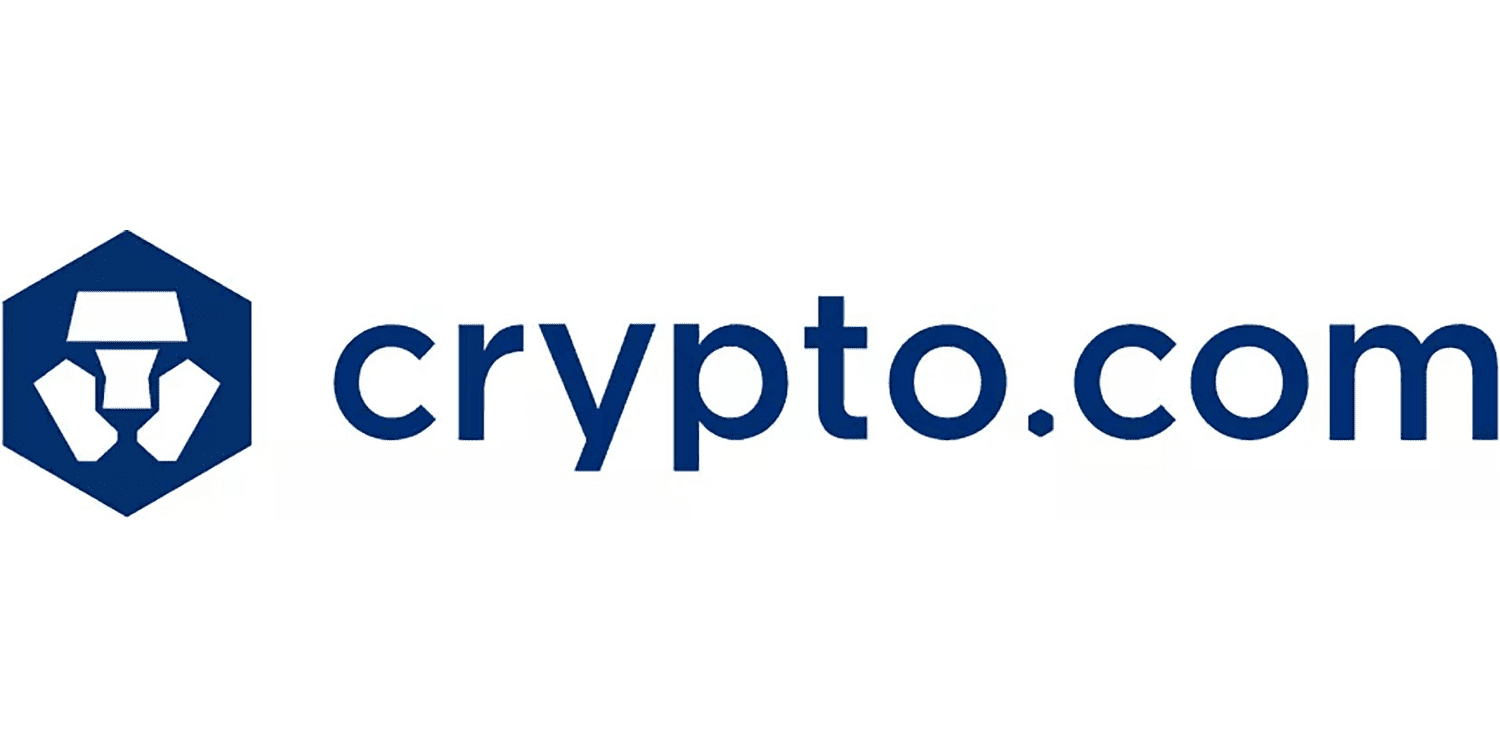


Singapore-based Crypto.com offers US customers approximately 200 cryptocurrencies, a standalone crypto wallet, NFT purchases, staking, crypto credit cards, and a separate decentralized exchange. Holding the exchange coin CRO gets you lower fees, better staking rates, and credit card rewards.
The platform us mobile-first which means that you can’t use it on desktop. However, the plethora if features available make it worthy of your consideration.
The mobile app is highly rated and straightforward. Despite many services offered through it, you can easily view your portfolio and a list of popular assets and make trades. The charting and analysis tools are somewhere between the basic and advanced platforms seen in many other exchanges.
The trading fees are relatively low, beginning at 0.4% for users with monthly volumes under $25,000 and no CRO holding. For higher-volume traders, it can be as low as 0.04%. Credit and debit card funding incurs a 2.99% fee, while ACH transfer is free. There’s also a small fee for withdrawing crypto to an external wallet.
Crypto.com offers a few options to hold coins on the platform, including a DeFi Wallet. With this separate app, you can earn rewards for tokens used in decentralized finance applications.
Assets with the platform are protected through substantial measures. The company also reports a $750 million insurance to cover customers’ assets lost to cyberattacks.
| Is Crypto.com Available in the US? | Yes (except New York) |
| Deposit Fee | Credit/Debit card: up to 4%; other methods: free |
| Trading Fee | 0.04%–0.4%. Varies based on 30-day trading volume and maker/taker order type. |
| Additional Fees | None |
| Withdrawal Fees | 0.0005 BTC (depends on cryptocurrency) |
| Minimum Order Value | $1 for BTC (depends on cryptocurrency) |
| Minimum Deposit | $1 |
| Number of Cryptocurrencies Pairs | None in the US |
| Does Crypto.com Have a Wallet? | Yes |
| Does Crypto.com Have an App? | Yes |
| Additional Services | NFTs, Crypto credit card, Decentralized trading |
| KYC Required | Yes |
| Maximum Leverage | Does not offer leveraged trading in the US |
| Platforms | iOS, Android |
How to Choose a Crypto Exchange
As we’ve already mentioned, choosing the right crypto exchange for your needs is essential for a smooth trading experience.
But, how do you know which platform is the most suitable for you?
Here are some things to consider.
Your crypto trading experience
Your level of experience with cryptocurrency trading plays a big role in determining which exchange is right for you. Some platforms will be suitable for beginner’s but not advanced traders and vice versa.
What makes a good Bitcoin exchange for beginners?
If you’re new to crypto, look for an exchange that offers a user-friendly interface and educational resources. Platforms with intuitive designs and clear instructions can make your entry into the crypto world much smoother.
Also try to find a platform that offers a demo trading account. This way, you will be able to practice trading before putting any money at risk.
What makes a good Bitcoin exchange for advanced traders?
If you have some experience, you might prioritize advanced trading features, more complex order types, and detailed charting tools for day trading.
Choose an exchange that offers these sophisticated tools without overwhelming you with unnecessary options. Advanced traders should also priotise low trading fees to support a higher quantity of trades.
Your Bitcoin trading strategy
Understand what type of trading you want to implement will help you to choose a Bitcoin exchange that offers relevant features.
Some features will be really useful for long-term holding but not so much for advanced day trading.
- Day trading: For frequent trades, you’ll need an exchange with high liquidity and low fees to keep trading costs down. Look for platforms with fast execution times and advanced charting tools.
- Long-Term Holding: If you plan to buy and hold cryptocurrencies for the long term, focus on an exchange with strong security measures and lower fees for withdrawals. You should also consider overnight fees and whether or not the exchange offers a native wallet.
Centralized vs Decentralized
During your research, you will come across two different types of Bitcoin exchange – centralized and decentralized exchanges.
Centralized exchanges have a central authority that manages the platform. These exchanges often have higher liquidity and more stringent security procedures. However, users have less control over their funds.
Decentralized exchanges allow you to trade anonymously. These platforms do not have a central authority. Instead, they are supported by blockchain technology.
These platforms often have a higher selection of coins available. However, they can be less user-friendly and may have lower liquidity compared to centralized exchanges.
For beginners, centralized exchanges are probably the most suitable option because they offer robust security.
Platform Reputation
Before you sign up to a platform, read through user reviews to check that other traders have had a good experience with the platform. This is the best way to understand whether the exchange can be trusted.
You should also look at:
- Regulation: Check if the exchange is regulated by relevant authorities, which can provide an extra layer of security.
- Past issues: Look into any past security breaches or operational issues. A reputable exchange will be transparent about its security measures and past incidents.
Fees
Some exchanges charge high fees, which can quickly eat into your profits. Below is an overview of the fees charged by each of the Bitcoin exchanges that we have reviewed.
| Coinbase | Gemini | Binance.US | Kraken | |
| Deposit Fee | $10 | $0 | $0 | $15 |
| Withdrawal Fees | $25 | $1.98* | $10 | $0.2 |
| Trading Fee | $0 – $6 | $9.9 – $14.9 | $0 – $4.5 | $0 – $2.6 |
| Holding Fee | $0 | $30 | $0 | $0 |
| Total Fee | $35 – $41 | $41.88 – $46.88 | $10 – $14.5 | $15.2 – $17.8 |
Trading tools and features
Over time, you may want to experiment with additional trading products such as staking, automated trading, lending and derivatives trading.
It helps to choose a platform that supports a variety of trading tools and features so that you have the option to try different products in the future.
The best Bitcoin trading platforms offer a range of different products on top of basic buying and selling. Of course, beginners won’t need to worry about complex features. However, it helps to be able to access features such as staking, social trading, ready-made portfolios and crypto cards.
Minimum deposit and payment methods
We recommend choosing an exchange that has a low minimum deposit so that you can test out the platform with a small amount of money before putting any more on the line.
From our list, Coinbase and Gemini both have very low minimum deposit options that allow you to invest as little as $1.
You should also look for a platform that supports a variety of payment methods. The most popular payment methods include bank transfer, debit card, credit cards and eWallets.
Supported tokens
Although you may currently be looking to buy Bitcoin, it helps to find an exchange that supports a selection of the best cryptocurrencies so that you can diversify your portfolio over time.
For experienced traders, search for a platform that offers small-cap tokens. These coins are popular for day trading because they are often very volatile.
Customer Support
Good customer support can make a huge difference if you encounter any issues whilst buying Bitcoin. Look for exchanges that offer 24/7 support to address problems anytime.
Check if the exchange provides multiple support channels, such as live chat, email, and phone support.
Liquidity and Trading Volume
High liquidity and trading volume are important for efficient trading. Higher liquidity means you can buy or sell assets without significantly impacting the price. This is especially important for large trades.
Higher trading volume indicates a more active market, which can lead to better trading opportunities and lower spreads.
When searching for a platform to use, focus on options that have strong trading volume and liquidity.
What is The Best Bitcoin Exchange in My Country?
Some exchanges are country-sepcific. To address this, we have created separate guides for investors who are searching from China, Europe, and Japan
How To Buy Bitcoin From an Exchange
Once you have chosen the best Bitcoin exchange to use in 2025, the process of buying Bitcoin is relatively simple.
Here are the main steps to follow:
Step 1: Create an account
Go to the exchange’s official website, select ‘create an account’ and follow the sign up process.
On most exchanges, you will need to provide proof of ID to verify your account during the sign up process.
Step 2: Connect a payment method
Once you have created an account, the next step is to connect a payment method.
We recommend choosing the method that comes with the lowest fees. You may need to verify the connection with your payment provider.
Step 3: Deposit funds
Head to your account and select ‘deposit funds’ (or your exchange’s equivalent). From here, you will be able to top up your account with fiat currency.
Consider starting with the minimum deposit before putting any more money at risk.
Step 4: Search for Bitcoin
Using the platform’s explore feature, search for Bitcoin or the ticker ‘BTC’.
Select the correct currency. You will then be able to view price analysis and market data.
Step 5: Open a trade
Depending on the exchange that you use, you should be able to buy Bitcoin by selecting ‘Buy’.
If you have decided to use a platform that facilitates futures trading, the process may differ slightly.
Make sure that you have selected the correct order type and size of your purchase before confirming the transaction.
Step 6: Transfer to an external wallet
For security, it is good practice to store your Bitcoin in a secure crypto wallet.
Most exchanges allow you to send your Bitcoin from your trading account directly to your wallet address.
Bitcoin Exchange Alternatives
An exchange is not the only way to buy Bitcoin in 2025. You could also use:
- Bitcoin robots: These are automated trading tools that use AI and algorithmic technology to trade on your behalf. They come with high risk but high reward.
- Peer-to-peer marketplaces: These platforms allow you to buy Bitcoin directly from other traders.
- Bitcoin ETFs: If you would prefer to stick to traditional investment methods, you can buy Bitcoin on some stock brokers through Bitcoin ETFs.
Final Thoughts
Coinbase stands out as our best Bitcoin exchange in 2025. We like this platform because it provides a user-friendly interface, the ability to invest from $1 and a native crypto wallet.
However, the best exchange for you will depend on your experience, goals and strategy. We recommend spending time shopping around before making any decisions. There are plenty of options out there for all types of Bitcoin traders.
FAQs
What is the best bitcoin exchange?
Coinbase is the best Bitcoin exchange for both beginners and experienced traders (who can use Coinbase Pro). The platform is user-friendly, offers a selection of tools and a low minimum deposit.
What is the cheapest exchange to buy Bitcoin?
Binance.US is the cheapest exchange to buy Bitcoin with fees from 0.1%.
What is the safest exchange to buy Bitcoin?
eToro stands out as one of the safest platforms to buy Bitcoin because it is licensed by several regulatory bodies.
Contributors




